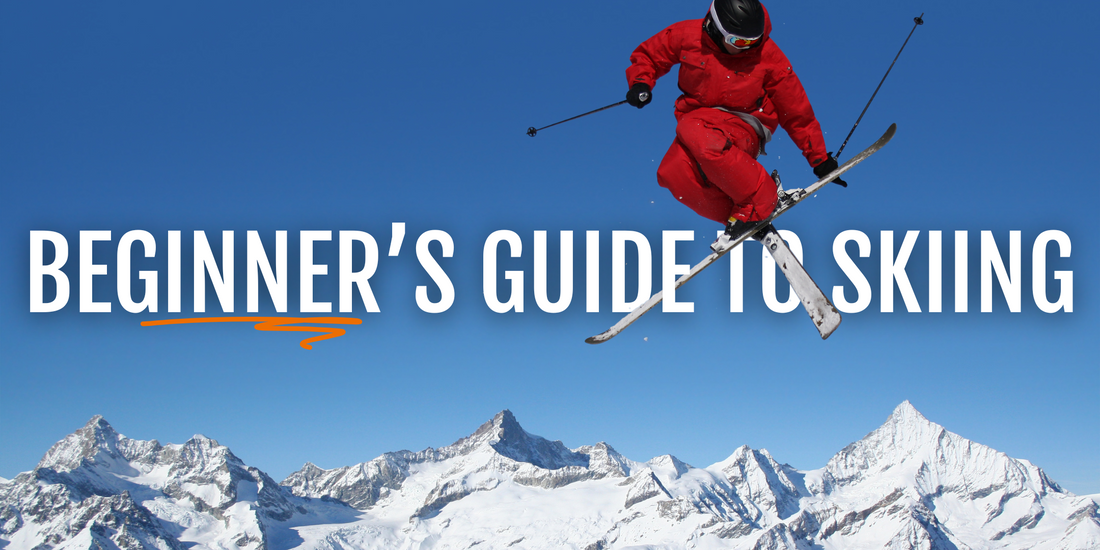
Beginner’s Guide to Skiing in the UK: Everything You Need to Know
Share
Stunning landscapes, thrilling excitement, and the sheer joy of being out in the mountains while staying active are just a few reasons why so many people love skiing. It's a fantastic sport to get into, and it can be more cost-effective than you'd initially expect.
Whether you've been invited on a ski trip or you're simply looking to try something new and adventurous, there's no need to worry. In this guide, we’ll go over everything you need to know, covering the basic gear requirements, the best places to learn skiing in the UK, and more.
What equipment do you need when skiing?
At a minimum, you'll need a pair of skis, boots, and poles to get started. That said, there are several other pieces of gear which can make skiing safer, comfortable, and ultimately more enjoyable.
You don’t need to buy everything we’ve listed, especially if you’re learning at a ski centre, but here’s a handy checklist of ski essentials to keep in mind:
- Skis, poles, and bindings: The core equipment for skiing, with bindings connecting your boots to the skis and poles helping with balance and control.
- Ski helmet: Essential for safety, protecting your head from potential falls or collisions.
- Ski goggles: Eye protection that improves visibility in bright sun, snow, or wind, and reduces glare off the snow.
- Ski jacket: A warm, waterproof jacket to keep you dry and insulated in cold and wet conditions.
- Base layers: Lightweight, moisture-wicking layers worn under your jacket and trousers which help regulate your body temperature while keeping you dry.
- Gloves/mittens: Thick, insulated gloves or mittens that keep your hands warm and dry as well as offering good grip on poles.
- Ski trousers: Waterproof and insulated trousers (or salopettes) designed to keep your legs warm and dry.
- Ski boots: Specially designed boots that clip into your bindings, providing necessary support and control.
- Thick socks: High-quality, moisture-wicking socks which provide warmth and prevent blisters.
- Ski backpack: A small, durable backpack to carry snacks, water, and other items.
Should you rent or buy ski equipment?
If you don’t already own ski gear, renting is a convenient and affordable option. Most ski centres and resorts offer rentals for essentials like skis, boots, poles, and helmets.
For beginners, renting is often the best choice as it keeps costs down while you get a feel for the sport. However, as you gain experience, investing in your own equipment becomes worthwhile, allowing for a more personalised and comfortable fit.
Where can you learn to ski in the UK?
The UK offers a vast array of indoor and outdoor ski slopes, catering to both beginners and seasoned skiers alike:
Indoor Ski Slopes in the UK
- The Snow Centre - Hemel Hempstead, Hertfordshire
- Snozone - Milton Keynes, Buckinghamshire
- Ski Zone - Basingstoke, Hampshire
- Snozone - Castleford, West Yorkshire
- Chill Factore - Manchester
- SnowDome - Tamworth, Staffordshire
- Snow Factor - Braehead, Glasgow
Outdoor Ski Slopes in the UK
- Glenshee Resort - Glenshee, Scotland
- Ski Rossendale - Rawtenstall, Lancashire
- Llandudno Ski Slope - Llandudno, Conwy
- Snowtrax - Christchurch, Dorset
- Plymouth Snowsports Centre - Plymouth, Devon
- Cardiff Ski Centre - Cardiff
- Gloucester Ski and Snowboard Centre - Gloucester
How fit do you have to be to ski?
Skiing engages a variety of muscles, which can leave you feeling sore if they’re not properly conditioned. In addition to muscle strength, skiing demands good cardiovascular fitness, flexibility, and balance. As such, If you're not particularly active, it's a good idea to start preparing several weeks in advance to build up your endurance.
Remember, skiing is a physically demanding sport, and like any exercise, there's a risk of injury. Although, by stretching regularly, pacing yourself, and following your instructor’s guidance, you’ll be doing your best to stay safe on the slopes.
Ski tips for beginners
- Dress in layers: Start the day warm and cosy, and if you get too hot, you can easily remove a layer to stay comfortable.
- Warm up: Do some stretches alongside a few star jumps, squats, or press-ups to loosen up your muscles and help reduce stiffness the next day.
- Stay hydrated and eat: Make sure to drink plenty of water and pack a few snacks in your pockets to refuel when you need energy.
- Take professional lessons: Learning from an instructor is the quickest way to develop proper technique and build confidence on the slopes.
- Don’t fear falling: Falling is part of the learning process; it’s a sign that you’re pushing yourself out of your comfort zone, which is vital for improvement.
- Take it easy: When you’re just starting, take frequent breaks and end your day before you become too fatigued.
- Stay persistent: Skiing can be challenging at first, but don’t let early difficulties discourage you. Stick with it, and soon you’ll see the rewards, making all the effort worth it.
The thought of hitting the slopes for the first time can be intimidating, but the benefits are substantial. Not only does it enhance your physical and mental health, but it also strengthens existing relationships and helps you forge new connections with a diverse range of people.
We hope this guide has provided a comprehensive introduction to skiing in the UK. If you're ready to get started, remember how important it is to be properly equipped. At Longsands, we have you covered with a wide selection of stylish and functional ski gear, including trousers, shorts, t-shirts, hoodies, sweatshirts, caps, beanies, and backpacks, along with various accessories.